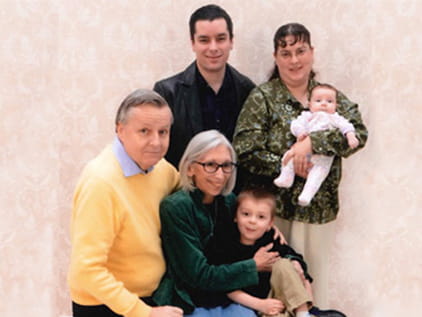Radioembolization Therapy
Radioembolization, also known as Y-90, is a minimally invasive procedure that combines embolization and radiation therapy to treat liver cancer. Our fellowship-trained interventional radiologists specialize in this minimally invasive, image-guided treatment.
What is radioembolization?
Radioembolization is a minimally invasive cancer treatment that delivers radioactive particles to a tumor through the bloodstream. The particles embed in the tumor and emit radiation that kills cancer cells. The procedure is also known as:
- Y-90, which stands for yttrium-90, the radioactive isotope used in this therapy
- Selective internal radiation therapy or SIRT
- Various tradenames, such as SIR-Spheres® and TheraSphere®
Who can have radioembolization?
Radioembolization treats primary liver cancer or liver metastases from:
- Colon cancer
- Metastatic neuroendocrine tumors
- Melanoma
- Lung cancer
- Bile duct cancer
- Kidney cancer
At The University of Kansas Cancer Center, we offer radioembolization in an inpatient or outpatient setting.
How does radioembolization work?
Radioembolization is a minimally invasive cancer treatment that delivers radioactive particles to a tumor through the bloodstream. The particles embed in the tumor and emit radiation that kills cancer cells.
Unlike systemic chemotherapy that doctors administer intravenously, radioembolization is a targeted, directed therapy administered only to the artery supplying blood to the liver. Radioembolization is more targeted than traditional radiation typically delivered externally by machine. Radioembolization is delivered internally and remains internal, minimizing side effects.

The gift of time, and hope
Benefits and risks of radioembolization
Pairing radioembolization with chemotherapy may be more beneficial than chemotherapy alone. Radioembolization is generally a single-cycle minimally invasive treatment that is administered under sedation. Injecting the microscopic spheres into the arterial blood supply allows for powerful doses of radiation to accumulate in tumors, destroying malignant tissue, while sparing normal cells.
Some studies show significant improvement in patient outcomes when radioembolization is combined with standard therapy and offered as part of a multidisciplinary treatment approach at a large-volume center such as ours. In many patients who have radioembolization, the disease state subsides to the point they are eligible for organ transplant or further tumor resection surgery. The treatment, which has been performed for nearly 2 decades, is not considered curative by itself.
Radioembolization is a minimally invasive procedure. As with all medical procedures, there are risks of pain, bleeding and infection. There are also risks associated with traditional radiation.
What happens during radioembolization?
Radioembolization is an interventional radiology procedure done at The University of Kansas Hospital. It is done with intravenous conscious sedation, which means you are semi-awake and can respond to verbal commands. The outpatient treatment is a 2-stage process: preparation/mapping and treatment. To ensure your safety prior to receiving radiation, you will have a mapping procedure that accesses the femoral artery through the groin, a diagnostic arteriogram to delineate anatomy, coils or plugs placed in branches to prevent misguidance and a test dose of radiation injected.
Why choose us
Radioembolization requires fellowship-trained interventional radiologists who are specially trained to perform the procedure and skilled radiation safety personnel. This sort of expertise is offered at The University of Kansas Cancer Center, an NCI-designated cancer center. By entrusting your treatment to us, you will receive care from experienced interventional radiologists in a program ranked No. 1 in patient volume by Vizient, Inc.
Request your appointment today.
To make an appointment at The University of Kansas Cancer Center, call 913-588-1227.